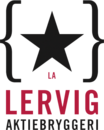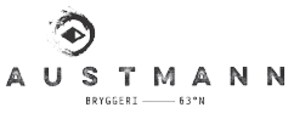Norwegian craft beer
History of beer in Norway is very connected with farm brewing, as up until 1800s almost each and every farm in the country had its own brewhouse—called bryggehus—and it was brewed using herbs and spices, as well as the original norwegian yeast, kweik. After the industrialization in the early 20th century, home brewing was outlawed, and the market is now concentrated in two hands, Hansa and Carlsberg.
The craft beer movement in Norway was introduced by a former SAS pilot, Kjetil Jikiun, who discovered the American craft beer movement in his flights to USA, and then started to imitate them at home. In 2002, he founded the most acknowledged Norwegian craft brewery, Nøgne Ø, along with Gunnar Wiig, and after having a tough time entering his own market, became a popular brewery in the US. In 2015, Hansa bought half of the company, and Kjetil ended up leaving the company after expressing his disagreement with the direction of the company. Other popular norwegian breweries are Lervig, founded by the American homebrewer Mike Murphy and considered one of the best breweries in the world, Ægir, HaandBryggeriet or Austmann.
Spanish craft beer
Irish craft beer
Belgian craft beer

Brazilian craft beer
French craft beer
Polish craft beer

Portuguese craft beer
Canadian craft beer

Croatian craft beer
Estonian craft beer
German craft beer
UK craft beer

American craft beer
Norwegian beer brands
Lervig
Lervig is a brewery founded by Mike Murphy in 2010 in Stavanger (Norway). Mike was one of the pioneers of the craft beer revolution in Europe.
He started in the 90's in the US, and after he was part of Rome Brewing in Italy, partnering with Leonardo di Vicenzo, who later would end up founding Birra del Borgo. After that he went north to Copenhagen (Denmark) to work at GourmetBryggeriet, to whom he had already sold his brewing equipment. In Denmark he also collaborated with the first steps of Mikkeller, brewing for him their famous stout Beer Geek Breakfast—a beer he still brews today at Lervig.
In 2010 he was offered to be the head brewer of a new brewery in Stavanger, and he inmediately joined. His first beer was Lucky Jack, an American Pale Ale that was considered too extreme for the Norwegian local market.
Lervig Brewery is nowadays one of the biggest craft breweries in Europe, and they have been consistently ranked as one of the best breweries in the world.
They had a publicity stunt in 2015 when they released their Big Ass Money Stout, a beer made with real money and frozen pizza, in collaboration with Evil Twin.
Go to Lervig
Nøgne Ø
Nøgne Ø was founded in 2002 by Gunnar Wiig and Kjetil Jikiun, two Norwegian homebrewers. Kjetil got in touch with the American craft beer scene as he worked as a professional pilot, and he soon started to create his own recipes. The name Nøgne Ø, comes from the first verse of Henrik Ibsen’s Terje Vigen poem [på den yderste nøgne ø...] and it means naked island. Their beginnings were hard, as there was little interest in the early 2000´s for craft beer in the Norwegian market, but Kjetil managed to introduce samples of their new beer when he was flying to the US. Finally, the quality of their brews got the attention of US importers, and they managed to get distributed in the US, making the international market the key of their survival and later growth. Some years later, after becoming the Norwegian largest microbrewery, Nøgne Ø was adquired by Hansa Brewing, which lead to his founder Kjetil Jikiun to leave the company, only after expressing his discomformity with the new direction of the brewery in a manifesto. Kjetil also left Norway for Greece, where he has started a new brewery called Solo Beer.

Go to Nøgne Ø
Austmann
Austmann is a Norwegian brewery located in the city of Trondheim. It was founded in 2013 by Thomas Sjue, Vinko Lien Sindelar and Anders Cooper. Austmann is an old Norse word used to describe the sailmen that went towards the west during the viking era. Their first brewing material was built out of recycled dairy equipment, but they managed to produce more than 60 different kinds of beer, and since 2016, they are 50% owned by Hansa.

Go to Austmann






